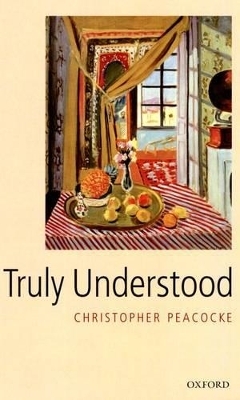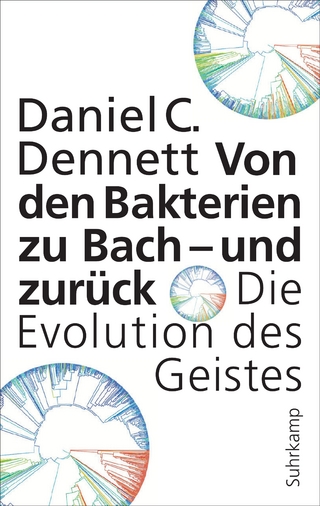
Truly Understood
Seiten
2010
Oxford University Press (Verlag)
978-0-19-958197-9 (ISBN)
Oxford University Press (Verlag)
978-0-19-958197-9 (ISBN)
What is it to be able to think about the material world, about oneself, and about other people? Christopher Peacocke argues that our concepts are to be explained in terms of the conditions in which they refer to aspects of the world. Reference and truth are fundamental in understanding.
In Truly Understood, Christopher Peacocke argues that truth and reference have a much deeper role in the explanation of meaning and understanding than has hitherto been appreciated. Examination of specific concepts shows that a grasp of these concepts has to be characterized in terms of reference, identity, and relations to the world. Peacocke develops a positive general theory of understanding based on the idea that concepts are individuated by their fundamental reference rules, which contrasts sharply with conceptual-role, inferentialist, and pragmatist approaches to meaning. He treats thought about the material world, about places and times, and about the self within the framework of this general account, and extends the theory to explain the normative dimensions of content, which he believes are founded in the network of connections between concepts and the level of reference and truth. In the second part of the book, Peacocke explores the application of this account to some problematic mental phenomena, including the conception of many subjects of experience, concepts of conscious states, mental action, and our ability to think about the contents of our own and others' mental states.
In Truly Understood, Christopher Peacocke argues that truth and reference have a much deeper role in the explanation of meaning and understanding than has hitherto been appreciated. Examination of specific concepts shows that a grasp of these concepts has to be characterized in terms of reference, identity, and relations to the world. Peacocke develops a positive general theory of understanding based on the idea that concepts are individuated by their fundamental reference rules, which contrasts sharply with conceptual-role, inferentialist, and pragmatist approaches to meaning. He treats thought about the material world, about places and times, and about the self within the framework of this general account, and extends the theory to explain the normative dimensions of content, which he believes are founded in the network of connections between concepts and the level of reference and truth. In the second part of the book, Peacocke explores the application of this account to some problematic mental phenomena, including the conception of many subjects of experience, concepts of conscious states, mental action, and our ability to think about the contents of our own and others' mental states.
Christopher Peacocke is Professor of Philosophy at Columbia University and Wollheim Professor of Philosophy at University College London.
PART I: A THEORY OF UNDERSTANDING; PART II: APPLICATIONS TO MENTAL CONCEPTS
| Erscheint lt. Verlag | 8.4.2010 |
|---|---|
| Verlagsort | Oxford |
| Sprache | englisch |
| Maße | 155 x 234 mm |
| Gewicht | 569 g |
| Themenwelt | Geisteswissenschaften ► Philosophie ► Erkenntnistheorie / Wissenschaftstheorie |
| Geisteswissenschaften ► Philosophie ► Sprachphilosophie | |
| Geisteswissenschaften ► Psychologie ► Allgemeine Psychologie | |
| Geisteswissenschaften ► Psychologie ► Verhaltenstherapie | |
| ISBN-10 | 0-19-958197-5 / 0199581975 |
| ISBN-13 | 978-0-19-958197-9 / 9780199581979 |
| Zustand | Neuware |
| Informationen gemäß Produktsicherheitsverordnung (GPSR) | |
| Haben Sie eine Frage zum Produkt? |
Mehr entdecken
aus dem Bereich
aus dem Bereich
Buch | Softcover (2023)
Reclam, Philipp (Verlag)
7,00 €
die Grundlegung der modernen Philosophie
Buch | Softcover (2023)
C.H.Beck (Verlag)
18,00 €
die Evolution des Geistes
Buch | Softcover (2025)
Suhrkamp (Verlag)
30,00 €
![Was heißt Denken?. Vorlesung Wintersemester 1951/52. [Was bedeutet das alles?] - Martin Heidegger](/media/113619842)

